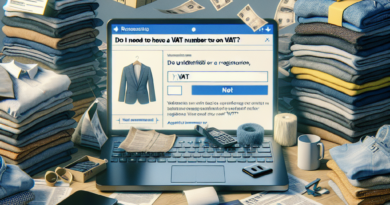Single Certification 2024 also for minimum and flat rates, the instructions
Single certification 2024, still must be presented even by minimum and flat-rate taxpayers.
Starting from the income paid in 2024, in fact, for these taxpayers the obligation to submit will no longer apply.
For 2023 income, which is declared in 2024, however, the obligation still remains.
The Cu, in fact, up to income for tax year 2023, is not only mandatory for employees but also for those who have a VAT number and operate under the minimum or flat rate regime.
From next year, in which the 2024 income will be declared, however, the obligation will cease.
Great care must be taken when presenting this certification because flat-rate and minimum taxpayers are not considered withholding tax and therefore if they receive an invoice with withholding tax they must pay it gross of the withholding tax.
These taxpayers are in fact exempt from paying withholding taxes and, therefore, also from submitting form 770.
This is a very important clarification especially given the fact that they will then be the recipient of the Cu itself and will have to pay the tax on income received since no withholding tax was made.
The deadline for the transmission of the former Cud form follows the ordinary calendar, therefore: by March 18th (the date usually falls on March 16th, but this year it was Saturday) the Cu must be sent to the worker, but it must be remembered that for VAT numbers in the flat-rate or minimum regime it is not mandatory but only optional; it must be sent to the Revenue Agency by 31 October, since the same deadline as the 770 form is applied.
Below we see the instructions for completing the 2024 single certification for VAT numbers that apply a preferential tax regime.
Single Certification 2024: ordinary, minimum and flat-rate taxpayers Those who carry out professional activities are obliged to present the single certification and form 770, including subjects who, for particular reasons (think of the minimums), are not subject to withholding tax .
As regards flat-rate VAT numbers, it is important to remember that the subject, not being a tax withholding agent, does not have to certify the compensation paid, but must indicate them in the RS section of the 2024 personal income tax return form.
Having said this, in the table below they are summarize the possible combinations of compensation paid/paying party/obligations Cu and model 770: Parties involved Obligations Single Certification and model 770 Ordinary who invoices to ordinary Both CU and model 770 Ordinary who invoices at minimum Both CU and model 770 Ordinary who invoices to flat rate The flat rate will not fill in either the CU or form 770, but only the RS part in the Income model Individuals Minimum who will invoice to ordinary The ordinary will fill in the CU but not form 770 Minimum who will invoice to minimum The minimum will fill in the CU but not the form 770 Minimum that invoices at a flat rate The flat rate will not fill in either the CU or the 770, but only the RS form in the Income model Individuals Flat rate that invoices at the ordinary The ordinary will fill in the CU but not the form 770 Flat rate that invoices at the minimum The minimum will fill in the CU but not the 770 form Flat rate invoicing at a flat rate The flat rate will not fill in either the CU or the 770, but only the RS form in the Individual Income model.
With regards to the deadline, the 2024 flat rate CUs can be sent together with the 770 form by on October 31st.
The transmission deadline of 18 March 2024 concerns only those relating to sums paid to employees and pensioners (subjects interested in the pre-compiled form 730).
read also Unica Certification 2022 expiring: instructions and news of the former Cud model Unica Certification 2024 minimum and flat rates: the codes for the compilation change The compilation of the CU must always be done taking into consideration the instructions of the Revenue Agency.
Let's see when certain codes should be used in the compilation, for example code 21 should be used in case of disbursement of other income not subject to withholding tax; code 22 is used to indicate the provision of exempt income or sums that do not constitute income; code 24 must be used for compensation, not subject to withholding tax, paid to individuals in the flat-rate regime referred to in article 1 of Law 190/2014; codes 13 and 14 are to be used in the case of sums that did not contribute to forming the taxable income (respectively, 50% or 90% of the amount paid), in relation to self-employed impatriated workers who returned to Italy from abroad before 30 April 2019 and who have exercised the option to extend the benefit for a further five tax periods.
Minimum and flat-rate taxpayers will have to fill in the CU with compensation and sums received: the data must be entered in the "self-employed work, commissions and other income certification framework" of the Single Certification, such as (in the case of agents and representatives) the amount of commissions and the compensation paid in 2023 to self-employed workers who operated with the minimum taxpayer regime or with the flat-rate regime.
If the compensation is subject to social security contributions, a distinction must be made: the INPS Separate Management supplementary contribution of 4% contributes to the formation of the compensation and must be reported in the CU; the supplementary contribution relating to professional funds must not be reported because it does not constitute compensation.
read also 2024 Income Model: instructions, deadline and news 2024 Single Certification for minimum and flat rates: the reverse case and sanctions In the event that professionals operating under the minimum or flat rate regime pay compensation to professionals under the ordinary regime, the rules to be follow are different depending on the case.
Taxpayers with a VAT number in the minimum regime pursuant to Legislative Decree 98/2011 are tax withholding agents.
This means that the taxpayer in the minimum regime who pays compensation to a professional in the ordinary regime will have to: pay the withholding tax by the 16th of the month following the month of payment; certify the compensation by completing and sending the 2024 single certification and form 770/2024.
In fact, minimum taxpayers are exempt from the application of withholding tax on their invoices but, vice versa, they are not exempt from the application of withholding taxes as advance payments on the invoices received (since they are, as said before, tax substitutes ).
On the contrary, taxpayers with a VAT number in the flat-rate regime pursuant to Law 190/2014 who pay compensation to a professional in the ordinary regime are not tax withholding agents.
This means that the flat-rate taxpayer who pays compensation to a professional under the ordinary regime: will not have to make the withholding tax and therefore will not have to pay the relevant F24 form (the invoice will therefore be paid "in full", exactly like a natural person who does not own VAT number); you will not have to certify the related compensation via the 2024 single certification and form 770.
The only obligation will be to indicate in the RS section of your UNICO PF form tax return: the tax code and of the professional in the ordinary regime to whom he/she pays the compensation; the gross amount of compensation paid.
Finally, there is a fine of 100 euros for each incorrect, omitted or late certification.
In case of incorrect transmission, the sanction does not apply if the error is rectified within 5 days following the deadline.
Goodbye to the Cu obligation from next year.
The obligation to complete and send the Single Certification for subjects who pay flat-rate and minimum compensation will cease from next year.
The innovation applies from 2024, but the effects will only be seen next year, when the CUs for the 2024 tax year will be presented.
This, therefore, is the last year in which the obligation remains given that we operate on the 2023 tax year.
From next year, those who received invoices from professionals operating in the flat-rate and minimum regime during 2024 will no longer have to complete the Cu and it will be sufficient to provide the information in this regard only in the declaration of incomes.




